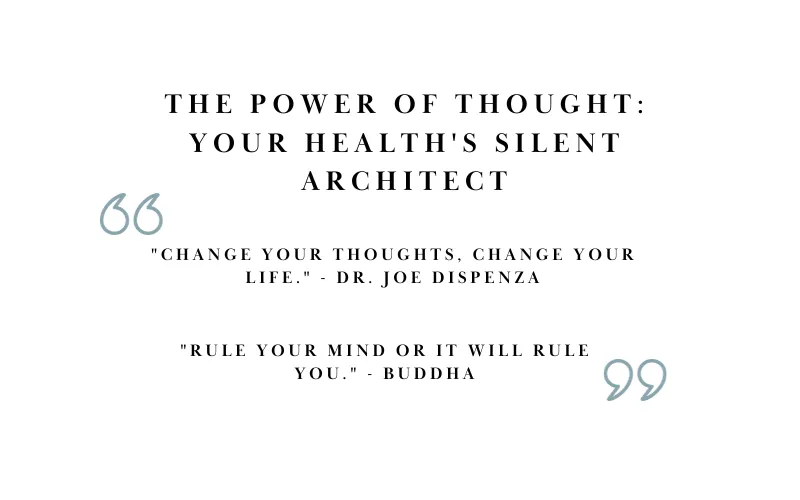Cultivating Wellness: Healthy Habits for a Balanced Mind
The Importance of Healthy Habits for Mental Health and Overall Wellness
Maintaining good mental health and overall wellness is essential for leading a fulfilling life. Healthy habits play a crucial role in achieving this balance. When we prioritize self-care practices, we cultivate a healthy mind that can better cope with the challenges of daily life.
Practical self-care practices are key to promoting mental well-being. By incorporating these habits into our routines, we can enhance our emotional resilience, reduce stress levels, and improve our overall quality of life. In this blog post, we will explore various self-care practices that can help us achieve optimal mental health and wellness. Let's dive in and discover the power of cultivating healthy habits for a balanced mind!
Practical Self-Care Practices for a Healthy Mind
Taking care of our mental health is just as important as taking care of our physical well-being. By incorporating practical self-care practices into our daily routines, we can cultivate a healthy mind and promote overall wellness. Let's explore some key self-care practices that can contribute to a balanced and thriving mental state.
Mindfulness
Practicing mindfulness is a powerful tool for reducing stress and improving mental clarity. By being fully present in the moment and non-judgmentally observing our thoughts and feelings, we can cultivate a sense of calm and inner peace. Simple mindfulness exercises, such as deep breathing and meditation, can be easily incorporated into our daily routines, allowing us to experience the benefits throughout the day.
Nutrition
The food we consume has a direct impact on our mental health. Eating a balanced diet rich in nutrients is essential for supporting brain function and promoting mental well-being. Foods high in omega-3 fatty acids, vitamins, and minerals have been linked to a lower risk of mental health disorders. By prioritizing whole foods like fruits, vegetables, lean proteins, and whole grains, we can nourish both our bodies and minds.
Exercise
Regular physical activity not only benefits our physical health but also has profound effects on our mental well-being. Engaging in activities like walking, jogging, or yoga releases endorphins - natural mood boosters that help reduce symptoms of anxiety and depression. Incorporating exercise into our daily routine not only improves our overall fitness but also enhances our mental resilience.
Sleep
Adequate sleep is crucial for maintaining a healthy mind. Establishing a consistent sleep routine and creating a sleep-friendly environment can greatly improve sleep quality and promote optimal mental wellness. Prioritizing restful sleep allows our brains to recharge, consolidate memories, regulate emotions, and perform at their best.
Stress Management
Stress can take a toll on our mental health, but effective stress management techniques can help us navigate through challenging times. Deep breathing exercises, such as diaphragmatic breathing, activate the body's relaxation response and reduce stress levels. Engaging in hobbies, practicing mindfulness, and seeking social support are also effective ways to manage stress and promote a balanced life. Setting boundaries and prioritizing self-care activities are essential for maintaining optimal mental well-being.
By incorporating these practical self-care practices into our daily lives, we can cultivate a healthy mind and achieve overall wellness. Each practice contributes to our mental resilience, emotional well-being, and ability to lead a fulfilling life. Let's embrace these habits and nurture our minds for optimal health!
The Role of Mindfulness in Promoting Mental Well-being
Mindfulness is a powerful practice that can have a profound impact on our mental well-being. By being fully present in the moment and non-judgmentally observing our thoughts and feelings, we can cultivate a greater sense of awareness and inner peace. Let's explore the role of mindfulness in promoting mental well-being.
Understanding Mindfulness
Mindfulness involves intentionally paying attention to the present moment without judgment. It allows us to observe our thoughts, emotions, and sensations with curiosity and acceptance. Regular mindfulness practice can improve focus, reduce anxiety, and enhance overall mental well-being. By training our minds to be more present, we can break free from the cycle of rumination and worry, leading to greater clarity and emotional resilience.
Incorporating Mindfulness into Daily Life
The beauty of mindfulness is that it can be integrated into various aspects of our daily lives. Simple mindfulness exercises, such as mindful breathing or body scans, can be practiced throughout the day to bring us back to the present moment. We can also incorporate mindfulness into routine activities like eating by savoring each bite mindfully or walking by paying attention to the sensations in our body and the environment around us. Even mundane tasks like doing household chores can become opportunities for practicing mindfulness.
Benefits of Mindfulness for Mental Health
Research has shown that mindfulness has numerous benefits for mental health. Regular mindfulness practice has been found to reduce symptoms of depression, anxiety, and stress. By cultivating an attitude of non-judgmental awareness, we develop a greater capacity for emotional regulation and resilience. Mindfulness also promotes a positive mindset by helping us focus on the present rather than getting caught up in worries about the past or future.
Incorporating mindfulness into our lives can have transformative effects on our mental well-being. By practicing presence and acceptance, we nurture a deeper connection with ourselves and the world around us. Let's embrace this powerful practice as we continue on our journey towards optimal mental health!
The Impact of Nutrition and Exercise on Mental Health
Our physical health and mental well-being are closely interconnected. The choices we make regarding nutrition and exercise can have a significant impact on our mental health. Let's explore the link between nutrition, exercise, and mental well-being, along with some practical tips for incorporating them into our lives.
The Link Between Nutrition and Mental Health
A healthy diet plays a crucial role in supporting brain function and promoting mental well-being. Nutrient-rich foods provide essential vitamins, minerals, antioxidants, and omega-3 fatty acids that nourish our brains. Research has shown that certain foods, such as those rich in antioxidants (like berries) or omega-3 fatty acids (like fatty fish), are associated with a lower risk of mental health disorders. By prioritizing a balanced diet that includes fruits, vegetables, whole grains, lean proteins, and healthy fats, we can support optimal brain function and promote positive mental health.
The Role of Exercise in Mental Well-being
Regular physical activity is not only beneficial for our physical health but also has profound effects on our mental well-being. Exercise releases endorphins - natural mood enhancers that help reduce symptoms of anxiety and depression. Engaging in activities like walking, jogging, dancing, or playing sports can improve overall mental health by reducing stress levels and promoting relaxation. Physical activity also increases blood flow to the brain, which enhances cognitive function and improves mood.
Practical Tips for Incorporating Nutrition and Exercise
Incorporating nutrition and exercise into our daily routines doesn't have to be complicated. Here are some practical tips to help us get started:
- Include a variety of fruits, vegetables, whole grains, lean proteins, and healthy fats in your diet.
- Aim for balance rather than strict diets or restrictions.
- Stay hydrated by drinking plenty of water throughout the day.
- Engage in activities you enjoy to make exercise more enjoyable and sustainable.
- Find ways to incorporate movement into your daily routine - take the stairs instead of the elevator or go for short walks during breaks.
- Set realistic goals for both nutrition and exercise to maintain consistency.
By prioritizing nutritious food choices and regular physical activity, we can optimize both our physical health and mental well-being. Let's embrace these habits as integral parts of our self-care routine!
The Significance of Quality Sleep in Maintaining a Healthy Mind
Sleep is not just a luxury; it is a fundamental pillar of our overall well-being, especially when it comes to our mental health. Understanding the significance of quality sleep can help us prioritize this essential aspect of self-care.
Understanding the Importance of Sleep
Sleep plays a vital role in cognitive function, emotional well-being, and overall mental health. During sleep, our brains consolidate memories, process emotions, and restore energy levels. Lack of sleep can have detrimental effects on our mental state, contributing to mood swings, difficulty concentrating, increased stress levels, and impaired decision-making abilities. It can also weaken our immune system and make us more susceptible to mental health disorders.
Tips for Improving Sleep Quality
To improve the quality of our sleep and support optimal mental well-being, we can incorporate the following tips into our routine:
- Establish a consistent sleep schedule: Going to bed and waking up at the same time each day helps regulate our internal body clock.
- Create a relaxing bedtime routine: Engaging in calming activities before bed signals to our bodies that it's time to unwind. This may include reading a book, taking a warm bath, or practicing relaxation techniques such as deep breathing or meditation.
- Create a sleep-friendly environment: Keep your bedroom cool, dark, and quiet to promote better sleep. Consider using blackout curtains or earplugs if necessary.
The Impact of Sleep on Mental Health
Adequate sleep has far-reaching effects on our mental health. It improves memory consolidation, enhances cognitive function including decision-making and problem-solving abilities. Additionally, quality sleep is crucial for emotional regulation. When we are well-rested, we are better equipped to manage stressors effectively and maintain optimal mental well-being.
By recognizing the significance of quality sleep and implementing strategies to improve its quality, we can support both our physical and mental health. Let's prioritize restful nights as an integral part of cultivating a healthy mind!
Effective Stress Management Techniques for a Balanced Life
Stress is an inevitable part of life, but how we manage it can greatly impact our mental health and overall well-being. Understanding stress and implementing effective stress management techniques can help us lead a more balanced life.
Understanding Stress and Its Impact on Mental Health
Stress can have a negative impact on our mental health, contributing to the development of mental health disorders. Chronic stress can lead to symptoms such as anxiety, depression, and burnout. It's important to recognize the signs of stress and take proactive steps to manage it effectively.
Practical Stress Management Techniques
There are various techniques that can help us effectively manage stress and promote a balanced life:
- Deep breathing exercises: Practicing deep breathing, such as diaphragmatic breathing, activates the body's relaxation response and helps reduce stress levels.
- Engaging in hobbies: Participating in activities we enjoy can provide a sense of joy and relaxation, helping to alleviate stress.
- Practicing mindfulness: Mindfulness exercises like meditation or mindful walking can help us stay present, reduce anxiety, and enhance overall well-being.
- Seeking social support: Connecting with loved ones or joining support groups provides an outlet for sharing our feelings and receiving emotional support.
Setting Boundaries and Practicing Self-Care
Setting boundaries in both our personal and professional lives is crucial for managing stress levels. Learning to say no when necessary, delegating tasks, and prioritizing self-care activities are essential for maintaining a balanced mind. Taking breaks throughout the day, engaging in hobbies or leisure activities we enjoy, practicing relaxation techniques like yoga or deep breathing exercises—all these contribute to reducing stress levels and promoting overall well-being.
By incorporating these effective stress management techniques into our daily lives, we can better navigate through challenging times and maintain a sense of balance. Let's prioritize self-care practices that help us manage stress effectively for optimal mental health!
Cultivating a Balanced Mind for Optimal Wellness
Incorporating healthy habits into our daily lives is crucial for achieving optimal wellness and maintaining a balanced mind. By prioritizing self-care practices such as mindfulness, nutrition, exercise, sleep, and stress management, we can cultivate a healthy mind that supports our overall well-being. These practical habits contribute to better mental health, emotional resilience, and a more fulfilling life. Let's embrace these practices and make them an integral part of our journey towards optimal wellness.
Remember, small steps taken consistently can lead to significant positive changes in our mental and physical well-being. Here's to cultivating a balanced mind for optimal wellness!
Ready to Transform Your Life? Join Our Exclusive Waitlist!
You've taken the first step toward a healthier, more balanced life by enriching your mind with these vital practices. But why stop there? Join our exclusive waitlist today to gain early access to even more life-changing content, personalized guidance, and a community of like-minded individuals dedicated to cultivating a healthier mind and body. Don't miss your chance to embrace the ultimate wellness journey. Sign up now, and let's flourish together!
Click Here To Join the Waitlist — Unlock the door to your well-being.
Refernces
- Mental Health Foundation. (2021). How to look after your mental health. Retrieved from Mental Health Foundation.
- Kabat-Zinn, J. (2013). Full catastrophe living, revised edition: How to cope with stress, pain and illness using mindfulness meditation. Hachette UK. Google Books.
- Harvard Health Publishing. (2020). Six relaxation techniques to reduce stress. Retrieved from Harvard Health.
- American Heart Association. (2018). The American Heart Association Diet and Lifestyle Recommendations. Retrieved from American Heart Association.
- Sleep Foundation. (2021). Healthy Sleep Habits. Retrieved from Sleep Foundation.
- Mayo Clinic. (2021). Exercise: 7 benefits of regular physical activity. Retrieved from Mayo Clinic.
- Headspace. (2021). The science behind mindfulness meditation. Retrieved from Headspace.









